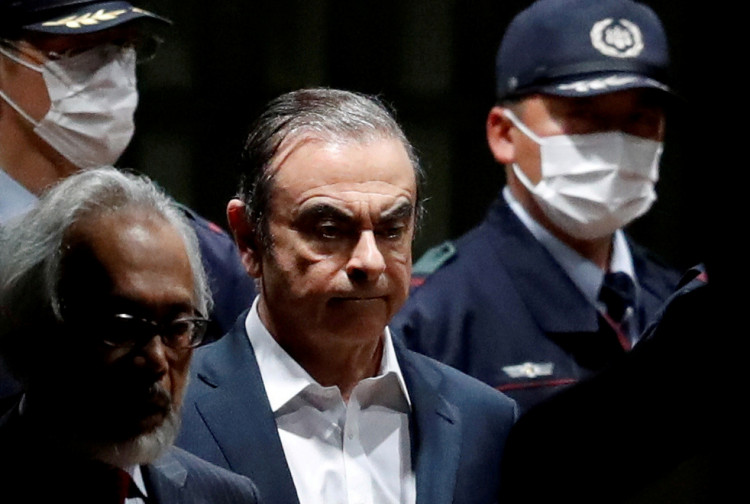This week, Japanese officials broke their silence over the entire Carlos Ghosn escape fiasco and stated that the country could press Lebanon to extradite the fugitive is necessary. Justice Minister Masako Mori stated during a press interview that they could still request extradition despite having no formal extradition agreement.
Mori clarified that such as request would need to be reviewed carefully as it could require reciprocity. This would mean that Japan would likely be forced to extend its benefits and penalties to Lebanon and to return any of its captured citizens back to the country.
Disgraced former Nissan and Renault-Nissan Alliance head managed to escape from Japan last week. Ghosn, who is now officially a fugitive of the law, flew to Lebanon. Exactly how he managed to escape and who had helped him is still unclear and authorities are still conducting an investigation.
Ghosn himself confirmed that he had escaped on New Year's Eve, revealing that it has successfully landed in Lebanon. Reports have confirmed than Interpol had issued a warrant of arrest for the executive on Thursday following his wild escape despite being on house arrest in his home in Tokyo.
Following news of his escape, the Turkish government had sent authorities to investigate. So far, a handful of individuals that are allegedly linked to Ghosn's escape have been detained. Among those that were arrested were four airline pilots, a cargo worker, and two ground staff. All of the individuals are currently being interrogated in order to learn more about how the executive was able to enter the country undetected.
Lebanese media reports have speculated on the various ways Ghosn could have entered the country. One report claimed that Ghosn might have been smuggled into the country inside a musical instrument case. Initial findings have suggested that Ghosn likely boarded a plan from Japan to Turkey before boarding a second plane to Lebanon.
The scenario is, of course, baffling to investigators given that authorities confiscated Ghosn's passports when he was arrested. Some reports have stated that Ghosn may have been allowed to keep a spare French passport. The executive does hold multiple citizenships in countries such as Brazil, France, and Lebanon.
It still remains to be seen if Lebanon will act on Interpol's arrest warrant for the executive. The country currently does not have a standing extradition agreement with Japan. Interpol is reportedly still coordinating with Lebanese authorities to conduct an operation to apprehend the wanted auto executive.
As of Sunday, reports have revealed that Lebanon has yet to formally accept the request made by Interpol in relation to Ghosn's arrest. The reports contradict earlier claims stating that Lebanese authorities had planned to question Ghosn over his wanted notice.






